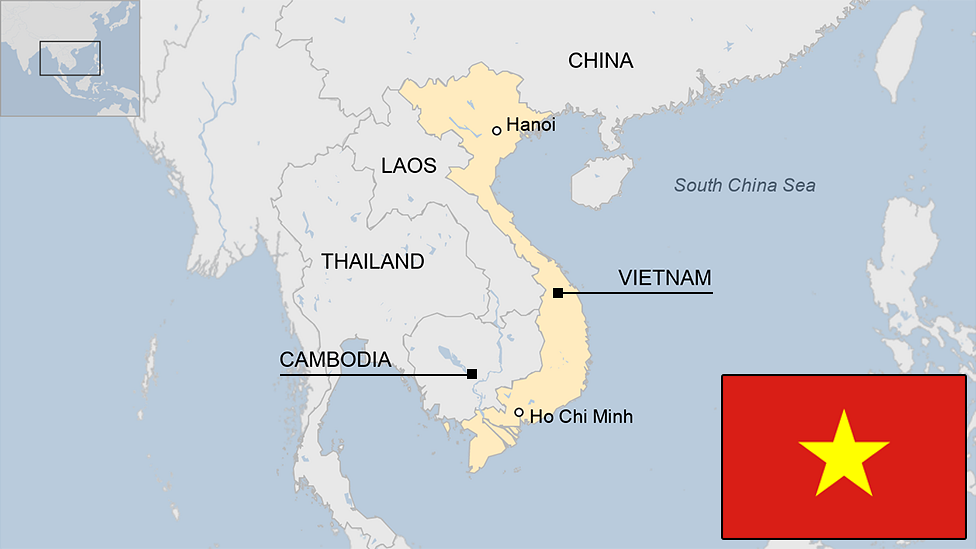Vietnam PM Nguyen Tan Dung pulls out of party boss race
- Published
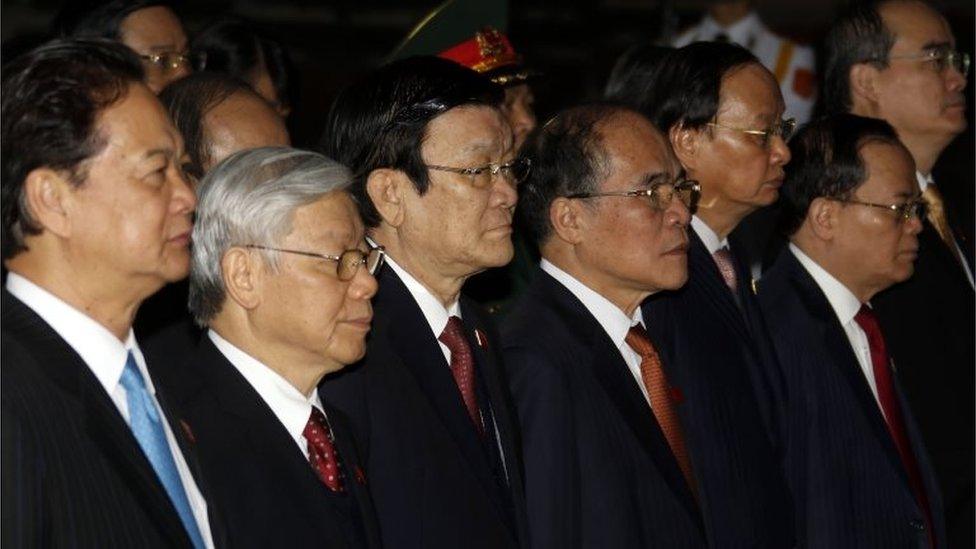
Mr Dung (far left) has given up on his attempt to replace party boss Nguyen Phu Trong (second left)
Vietnamese Prime Minister Nguyen Tan Dung has withdrawn from the contest to lead the ruling Communist Party.
He failed to win sufficient support among delegates at the party congress, clearing the way for incumbent General Secretary Nguyen Phu Trong to remain in post.
Correspondents say the political career of Mr Dung, who oversaw 10 years of economic reform, is in effect over.
The new leadership of the Communist Party has yet to be finalised.
The congress concludes on Wednesday.
Mr Dung's name had been put forward by delegates to be a member of the next central committee, giving him a chance to challenge Nguyen Phu Trong.
But the party congress voted on Tuesday to accept the prime minister's decision to withdraw his nomination after he failed to win enough backing among the 1,500 delegates.
"Dung is not on the list," a government source told the AFP news agency late on Monday.
The decision brings weeks of political infighting to a close. Agreement on the party leadership is traditionally reached well in advance.
Conservatives, led by Mr Trong, are concerned that Vietnam is abandoning its socialist past under Mr Dung.
During his 10 years in office Mr Dung has driven the reforms which have seen Vietnam grow quickly as it has been integrated into the global economy.
However, conservatives have criticised the speed of the reforms and rising corruption.
Key appointments
The Communist Party congress is held every five years in the one-party state.
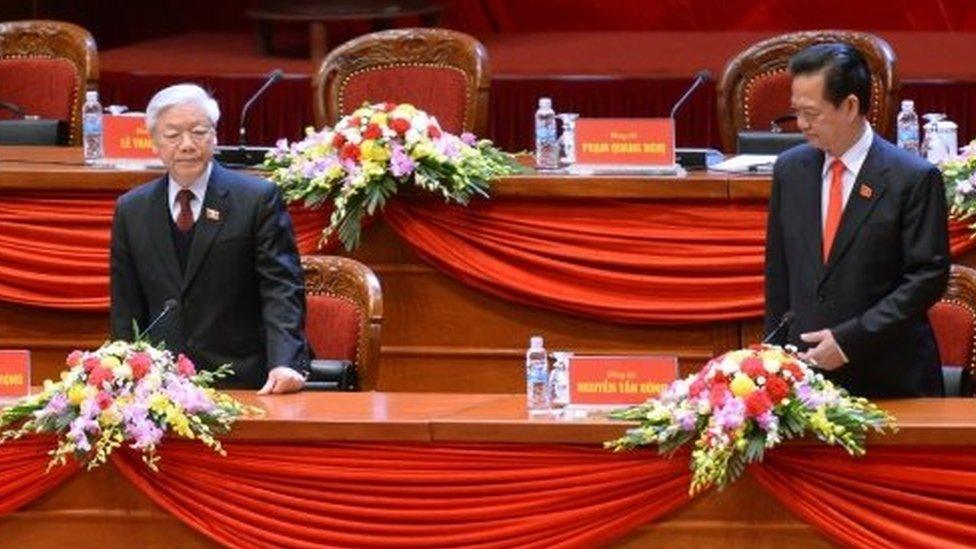
Rival comrades? Nguyen Phu Trong (left) has voiced concerns at the speed of reforms led by PM Nguyen Tan Dung
Behind closed doors, the 1,510 members will nominate the party's general secretary and the next president and prime minister.
Mr Dung is seen as modern, and friendly towards the US. He has also gained popularity domestically with strong anti-China rhetoric when it comes to disputed territory in the South China Sea.
Mr Trong is seen to be more friendly towards China - Vietnam's largest trading partner.
How new leaders will be chosen:
Delegates will elect a new central committee
On one of the last days of the congress, the new central committee will meet to select a 16-member politburo from among its ranks
From within the politburo a general secretary, prime minister and president will be nominated
The general secretary will need approval from congress
The prime minister and president will be approved by the national assembly in about six months time - however this is normally just rubber stamping
- Published24 January 2016
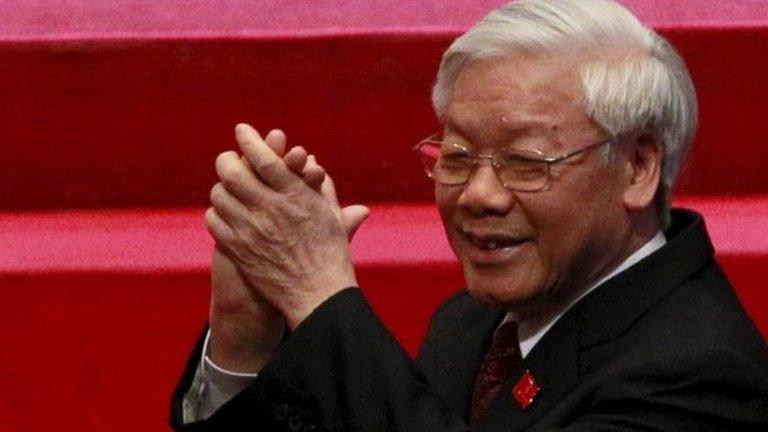
- Published21 January 2016
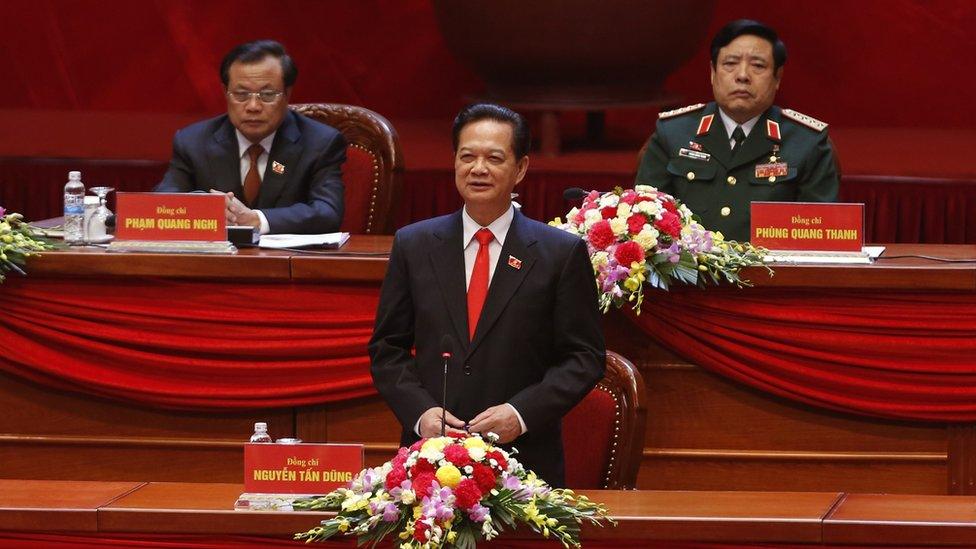
- Published20 January 2016
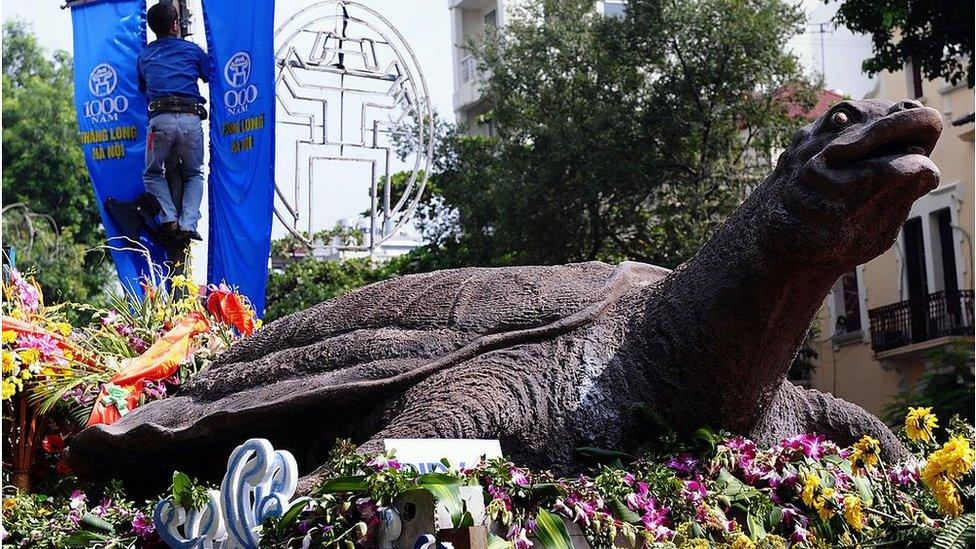
- Published23 October 2024
